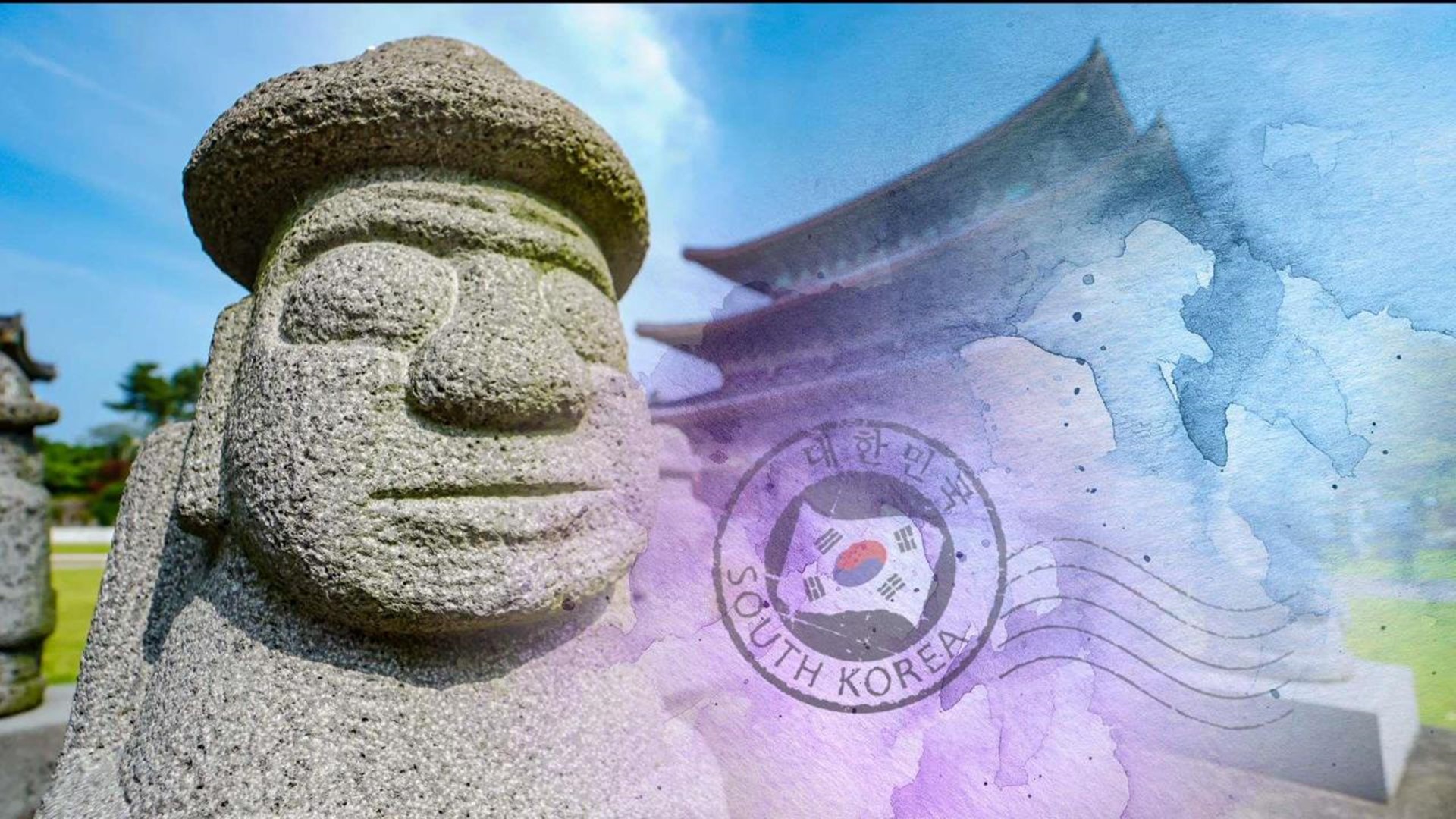JEJU ISLAND, South Korea (WTHR) — Off the southern coast of the Korean peninsula is a tropical paradise, a magnificent coastline, a place that beckons Koreans and foreigners to the water. Jeju Island will either take your breath away or require you to hold it. The women in the wetsuits are known as Haenyeo.

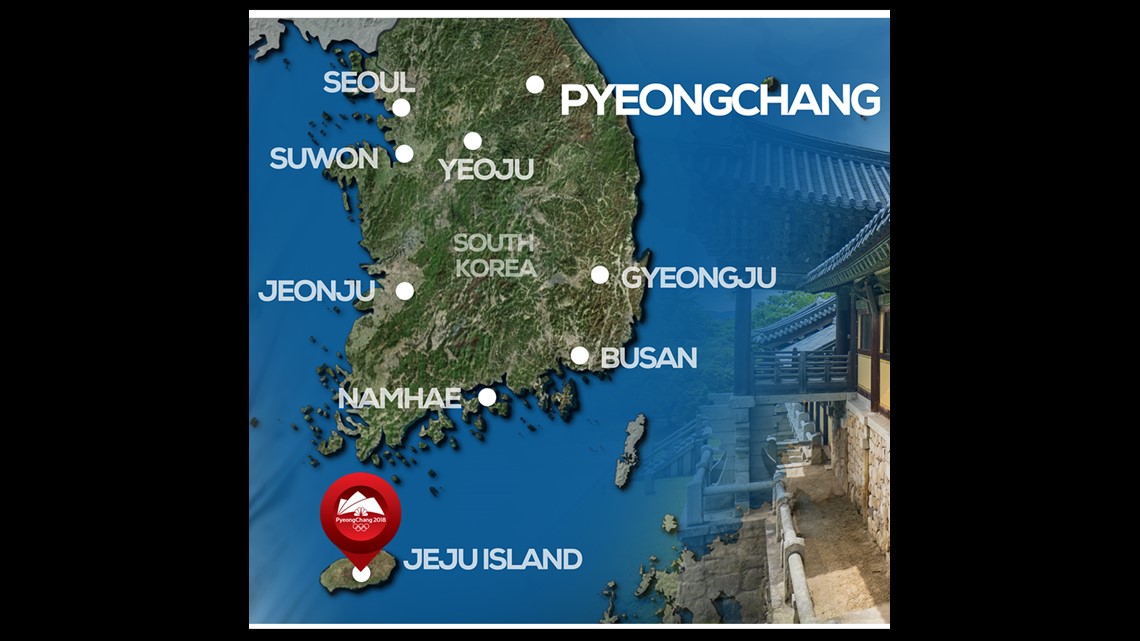
"Haenyeo is the woman who dives in water without air tanks and hold their breath and generally dive about 15-to-20 meters to pick up all different types of edible seafood," said a Korean interpreter who lives on Jeju.
"Visit Korea" refers to the Haenyeo as "the mermaids of Jeju." But these are not young women. Many of the Haenyeo have been diving in the waters off Jeju for decades.
"I'm 75 years old. I've worked as a diver almost 60 years," said Hung Chung Zhao.
Every day, the procession begins. The Haenyeo walk in a single file line to the beach. They will use spit and seaweed to clean their masks. Then, they will wade into the water, carrying a basket attached to a small orange float.

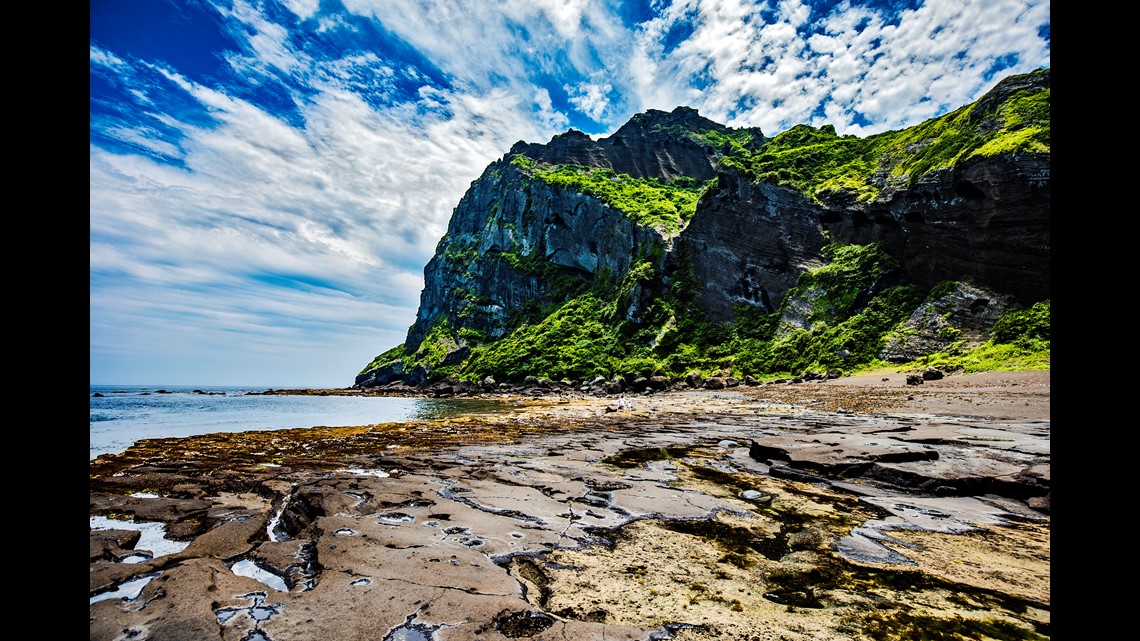
"We dive for 2-3 hours. Sometimes, we're in the water almost six hours," said one of the female divers.
The Haenyeo will hold their breath for up to a minute as they use a hand tool to look for abalone, clams, sea urchins or seaweed. It is spectacular scenery underwater. But it is difficult work.
"They do work hard to support their family and to feed their children," said a Korean interpreter who lives on Jeju.
"Compared to the other divers, I can't hold my breath very long. That's why I can't dive in deep water. To get the conch shells and abalone, we have to dive in deep water. That's why I dive in shallow water," said 81 year-old Oh Hin Za. "I learned my diving work when I was 15 years old. When I was 30, I stopped and worked at a fish market. Then, when I was 50, I started diving again."
Many of these women are continuing their family's tradition of diving. According to "Visit Korea", many of the girls on the island started diving for clams or abalone when they were 10 years old.

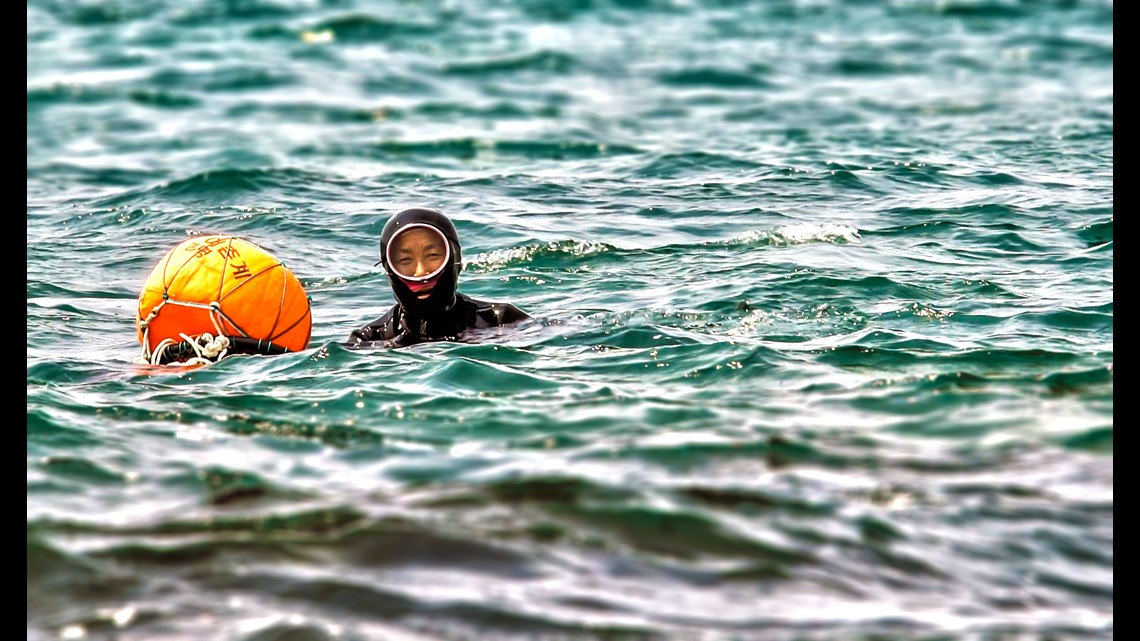
"My grandmother and my mother were divers. They didn't push me to study hard. I just learned naturally," said Hung Chung Zhao. "In the past, the conch shell was not considered valuable. The seaweed was worth more money. Since we started putting on the wetsuit, we could stay in the water longer. People started enjoying the taste of conch shells. We started picking up more conch shells and abalone."
At the end of the dive, the Haenyeo will carry their heavy baskets across the sand. Many of these women are in their 70's and 80's.
"When she walked on the ground, she moved very slowly and looked awkward. But, I know once they go into the water, she'll move like mermaid, like a fish," said an interpreter who lives on Jeju.
The Haenyeo make a living by selling what they have harvested. Many of the Haenyeo come from challenging backgrounds.
"We are very poor. That's why I dive," said Park Tuan.
"When my grandmother was young we were very poor. My mom taught me how to dive just to make a living. My mom taught me how to pick up the seaweed and all the other seafood," said one of the female divers.
According to "Visit Korea", there were 5,600 female divers in 2002. The tourism website predicted the number of Haenyeo would be less than half that number in 2012.

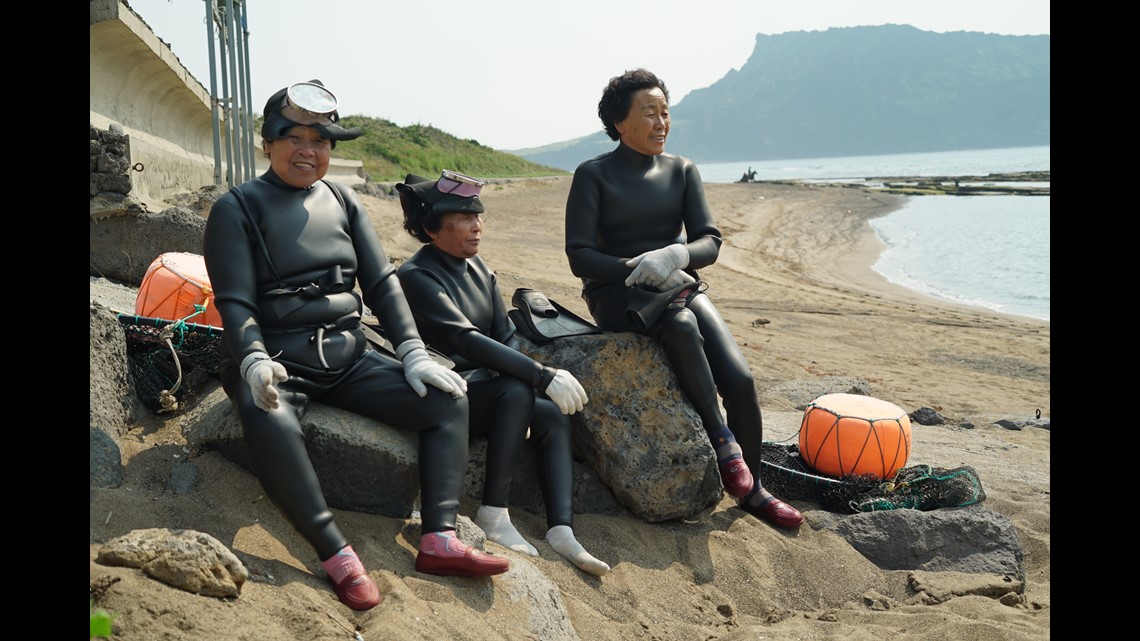
"Yes, I worry about these jobs going away because all of us are old people. We are disappearing," said Park Tuan. "We try to teach diving skills to our daughters or other young people. They don't try diving."
Another thing has changed. These women now view their occupation much differently than they did in the past.
"When I was a young diver, I became tired and sad. But these days, people looked at their jobs in a different way. Journalists started coming and doing stories about us. Even though I didn't graduate from college, I'm very proud of my job and my life," said Hung Chung Zhao.
There is also a Haenyeo Museum on Jeju that shows visitors what life is like for the female divers.
In one of the most beautiful places in the Olympic host country, you can fish the traditional way or the Haenyeo way. The women of the sea. Swimmers with a work ethic matched by the strength of their lungs.
Only in Jeju.

